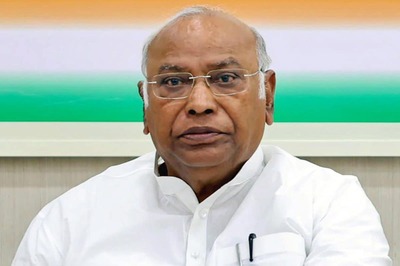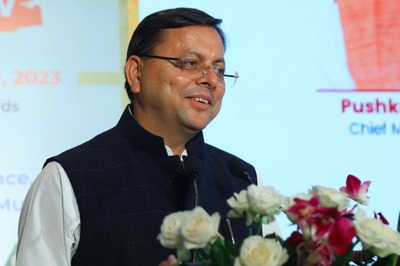
views
London: A British politician defied a court order on Monday by identifying Manchester United's Ryan Giggs as the soccer star fighting a legal battle to prevent newspapers from publishing allegations of an affair.
The move was the latest twist in an increasingly farcical game of cat-and-mouse that has pitted Britain's judiciary against Twitter users, the media and politicians.
The issue has prompted Prime Minister David Cameron to promise a review of the country's privacy laws.
"With about 75,000 people having named Ryan Giggs on Twitter, it's obviously impracticable to imprison them all," Liberal Democrat politician John Hemming said in parliament.
Hemming, who has campaigned for press freedom, used parliamentary privilege to name the player with impunity.
For weeks, British media have been fighting the growing use by the rich and famous of "super injunctions" -- English court orders which prevent publication of unwelcome stories and prohibit journalists from even reporting that a ban is in place.
A newspaper in Scotland, which has its own legal system, ran a thinly disguised photograph on Sunday of Giggs over an article calling it "unsustainable" to bar reporters from naming the man identified in hundreds of Twitter postings as among celebrities using court orders to stifle sex scandals.
However, the High Court in London on Monday turned down a request from the Sun newspaper, part of Rupert Murdoch's media empire, to allow it to name the player. Judge David Eady said there was no legitimate public interest in publishing the name.
TAUNTING FANS
Rival fans had taunted Giggs during a weekend match, adding to the furore over his efforts to maintain his anonymity.
Giggs, a Welsh international, has played for English champions United for two decades and is one of the best known soccer players in the country.
Aged 37, he is married with two children and rumours of an affair -- with reality TV star Imogen Thomas -- have dented his image as one of the game's gentlemen.
Lawyers representing the player had asked U.S.-based Twitter via a London court for information about the users of the messaging website who published details of his private life.
For weeks, English newspapers have responded to bans taken out by a number of celebrities, including other sports stars and actors, by making apparently innocent references to them in gossip columns in the knowledge that readers, having read up on the Internet, will spot the barbed comments behind the stories.
Attorney General Dominic Grieve announced on Monday that a parliamentary committee would study the issues raised in what has turned into a clash between politicians and the judiciary.
Cameron, in a television interview, said earlier: "It is rather unsustainable, this situation, where newspapers can't print something that everyone else is clearly talking about.
"The danger is that (court) judgments are effectively writing a sort of new law, which is what parliament is meant to do," he added, laughing off a question about whether he knew which soccer star was involved.
Politicians have also used parliamentary privilege to disclose that former Royal Bank of Scotland head Fred Goodwin had won a gagging order. Goodwin came under fire for taking a generous pension despite his bank needing a state rescue.




















Comments
0 comment